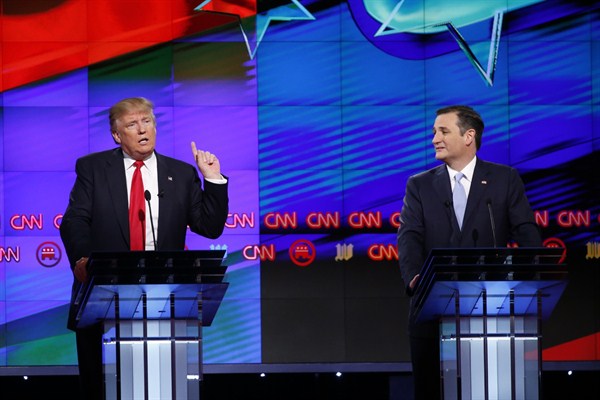A specter is haunting American politics—the specter of terrorism. As the self-styled Islamic State added transnational terrorism to its repertoire, it inspired or directed terrorist attacks in both Europe and the United States. There will almost certainly be more attacks to come. The fear of those attacks is adding to the turmoil that already characterizes American politics and, combined with intense political partisanship, pushing the political system in some very dark directions.
This is by design: The architects of terrorism deliberately stoke fear, using it to attain psychological effects that far exceed their actual ability to kill or destroy. They know that fear weakens their opponents. Even though the chances of being a victim of terrorism in the United States are miniscule, more Americans list terrorism as their nation’s top challenge than any other. According to one poll, 40 percent of Americans believe that radical Islamists are winning their battle against the United States.
Terrorism’s psychological power derives in part from a shared sense of helplessness. It is difficult, perhaps even impossible, to totally prevent or deter it. This is the conundrum for policymakers and politicians: The public expects 100 percent success even though it is unattainable. When political leaders and security officials do prevent terrorism, they receive little credit, since that’s expected. But when they fail, they pay a heavy political price.

